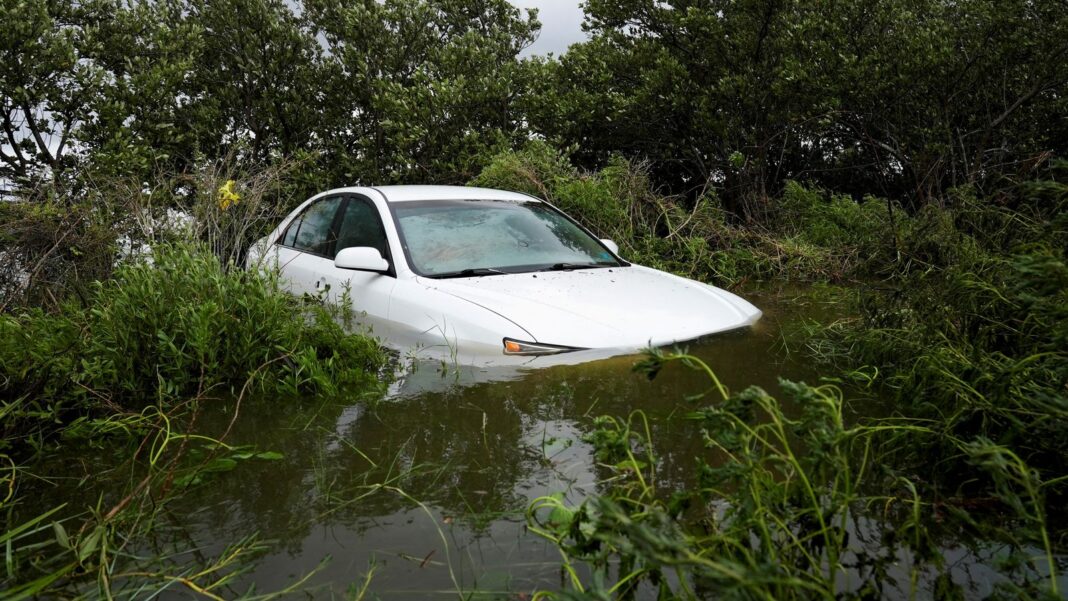This year’s Atlantic hurricane season has an 85% chance of being more active than usual, according to experts.
Seventeen to 25 named storms are predicted, with 8 to 13 becoming hurricanes, including four to seven major hurricanes.
The average is 14 named storms, seven hurricanes and three major hurricanes.
The outlook comes from the US National Oceanic and Atmospheric Administration (NOAA), which said there was also a 5% chance of below average activity.
It covers the North Atlantic – from the coast of Africa to the Caribbean Sea and the Gulf of Mexico.
The season lasts from 1 June until the end of November.
Hurricanes rated category 3 and above on the Saffir-Simpson scale are classified as major.
There are several factors for tropical storm development, but there a few key reasons why scientists believe it will be an active season.
Forecasts suggest record high sea surface temperatures in the Atlantic will continue, aiding the development of storms.
Meanwhile, the transition to La Nina (the cooling of sea temperatures in the Equatorial Pacific) is expected this year, with NOAA suggesting it could form as early as June to August.
La Nina should reduce wind shear in the tropics, meaning little change in wind speed and direction with height – another element that will help storms develop.
Hurricane Lee hit Canada as a post-tropical cyclone in September 2023 Pic: NOAA/ Reuters

Pic: Reuters
2020 had the most named storms, but there were more hurricanes in 2005 – a year that brought three devastating category 5 hurricanes: Katrina, Rita and Wilma.
It’s feared conditions this year will be very similar to 2005, notwithstanding the minor 5% chance of reduced activity.
Last year, NOAA increased its May forecast of 12 to 17 named storms to 14 to 21 in August.
Twenty named storms were ultimately observed, the fourth highest since 1950.
It was quite unusual as it occurred while the Pacific was experiencing a strong El Nino event, which usually helps limit activity in the Atlantic.

Keep up with all the latest news from the UK and around the world by following Sky News
Research suggests the number of tropical cyclones globally is unlikely to increase due to climate change.
However, the Intergovernmental Panel on Climate Change has said a warmer world is very likely to bring both higher rainfall and maximum wind speeds.







